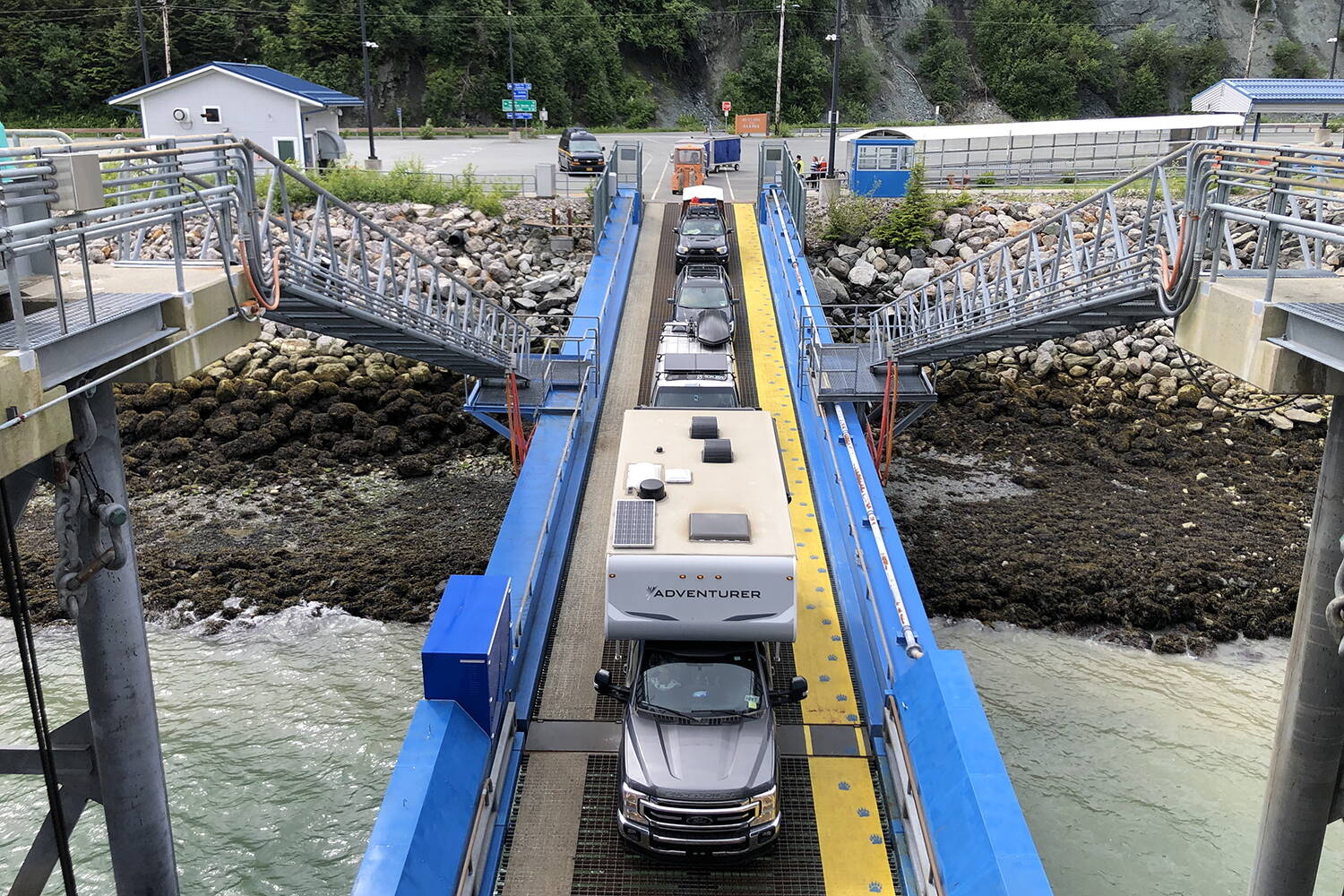A Republican legislator from Wasilla has proposed legalizing some types of gambling aboard Alaska Marine Highway System ships as a way to raise operating revenue for the state-run ferry system.
The proposal encountered rough seas during its first hearing as legislators questioned the financial gain and an expert said it could be difficult to implement.
House Bill 197, from Rep. Jesse Sumner, R-Wasilla, would allow Vegas-style slot machines and other electronic gambling and is envisioned as raising money for the state in the same way that riverboat casinos raise money for states in the Lower 48.
Cruise ships that visit Alaska already have the ability to operate casinos if they’re more than 3 miles offshore, and Sumner said in written testimony that he envisions a similar model for Alaska ferries.
Cody Rice, an aide to the Alaska House’s coalition majority, said he estimates that the bill “would potentially raise in the order of $20 million or more per year, substantially offsetting the Alaska Marine Highway System’s net costs.”
“It will be a win for this Legislature, a win for our ferry system, and most importantly, a win for Alaska,” said Joseph Lurtsema, an aide to Sumner.
But some legislators immediately began questioning the idea. Most of the ferry system’s routes are within 3 miles of shore, noted Rep. Louise Stutes, R-Kodiak and the ferry system’s most passionate legislative advocate.
“There’s only a few routes that this would be applicable for,” said Craig Tornga, marine director of the ferry system.
State ferries sail beyond 3 miles offshore only when traveling between Kodiak Island and the mainland, when traveling to Dutch Harbor, across the Gulf of Alaska, and some spots within Prince William Sound, he said.
That would significantly reduce gambling’s earning potential below Rice’s estimate, which was based on ferry ridership and national average gambling participation.
The ferry system could do some things to offset that, Rice said, including rerouting sailing routes beyond the 3-mile line and adding new routes. Some people might take the ferry just to gamble, just as they do in the Lower 48, he said.
“I suspect it’s conservative,” Rice said of the $20 million per-year estimate.
Tornga also cautioned that Alaska’s ferries — many of which were built in the 1960s — may lack the electrical capacity for large numbers of slot machines or other gambling devices.
“That was back in the day where you didn’t have outlets for charging phones and plugging in computers. And so there’s a little bit of work to do on this. What are the requirements?” he said.
Significant modifications to the ferries would have to be approved by the U.S. Coast Guard and the American Bureau of Shipping, he said.
Any changes to Alaska’s gambling laws may also run into opposition from the state’s established gambling institutions, legislators noted. The state has dozens of pull-tab parlors whose proceeds benefit nonprofit organizations and Native tribes.
Prior bills that sought to change gambling laws have run into lobbying efforts organized by the pull-tab industry.
“I know that that could be a real issue,” said Rep. Sarah Vance, R-Homer.
• James Brooks is a longtime Alaska reporter, having previously worked at the Anchorage Daily News, Juneau Empire, Kodiak Mirror and Fairbanks Daily News-Miner. This article originally appeared online at alaskabeacon.com. Alaska Beacon, an affiliate of States Newsroom, is an independent, nonpartisan news organization focused on connecting Alaskans to their state government.

